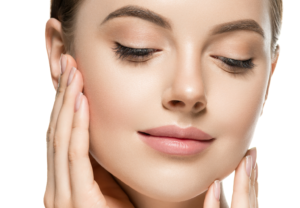To slow down hair loss, it is essential to exercise regularly and eat a healthy, balanced diet, according to a doctor specializing in hair health.
“The hormonal imbalance caused by diabetes can cause an interruption in hair growth cycles,” explains Dr. Carlos Gómez, from Hospital Capilar.
While a healthy person’s hair grows about two centimeters per month, diabetes can interfere with hair growth cycles,” he says.

“Any type of sport is beneficial in helping to alleviate the symptoms of diabetes, including hair loss, especially those that involve moderate cardiovascular exercise,” according to Dr. Gomez.
Diabetes is a chronic disease that is predominant worldwide in the adult population, but one of its lesser-known aspects is the link between this condition and alopecia, since, during this disease, one of the symptoms that usually occur frequently is hair loss.
This problem can originate from the hormonal imbalance caused by diabetes and which affects the main systems of the human body, such as the circulatory or nervous systems, linked to hair growth, according to Dr. Carlos Gómez, medical director of Hospital Capilar, HC, (https://hospitalcapilar.com).
Diabetes often causes patients to have poor blood circulation, slowing down the growth of hair follicles, which need blood flow to stimulate hair growth, according to this doctor.
“We can say that this hormonal imbalance leads to the obstruction of the capillaries responsible for hair revitalization, causing an affectation due to many factors, ranging from a delay in the growth phases of the follicle to alterations in microcirculation,” explains Dr. Gómez.
“Thus, while the hair of a healthy person grows about 2 centimeters per month, diabetes can cause hair growth cycles to be interrupted, since, without good blood circulation, the hair follicles spend more time in a resting phase, without being replaced at the same speed as they fall out,” he points out.
Gomez adds that these circulatory problems can also lead to hair that grows back weaker and thinner than usual.
SUGAR IMBALANCES AND HAIR LOSS
This hair loss caused by diabetes, which affects men and women equally, also has a direct link to the patient’s immune system, which is more prone to bacterial and fungal infections on the scalp, which can interrupt the hair growth process.
“The scalp, like the rest of the skin, can suffer alterations due to an excessive intake of sugars and, by maintaining these high levels, the body begins to suffer from dehydration, influencing the quality of the skin and hair,” says the expert from HC, a hair surgery corporation specializing in hair grafts.
When blood sugar levels are high or low, our body prioritizes other functions over hair growth, failing to provide hair follicles with the usual nutrients,” says Gómez.
Therefore, “it is essential to adequately control these sugar levels since it will be the main way to help us prevent hair growth from being delayed,” stresses the medical director of Hospital Capilar.
HEALTHY DIET AND CARDIOVASCULAR EXERCISE
To keep this disease under control and alleviate its effects, HC stresses the importance of following appropriate treatments, as well as having an active life through regular exercise, which will improve blood flow and help hair grow stronger.
“Any type of sport is beneficial in helping to alleviate the symptoms of diabetes, especially those that involve moderate cardiovascular exercise,” says Gómez.
However, in cases where a person has very advanced diabetes, it is advisable to avoid impact sports, “since in the advanced stages of the disease, sensitivity is altered and the patient may injure himself without even noticing it,” warns this doctor.
It is also essential to maintain a healthy and balanced diet, “avoiding excess carbohydrates and promoting the intake of fruits and vegetables, which will help maintain balanced sugar levels, minimizing the hair loss that occurs,” according to HC.
“Although there is no particular food that helps to stop hair loss caused by diabetes, what does help to alleviate its effects is avoiding the consumption of foods that contain excess sugar in general,” Gómez explains to Efe, stressing that “the important thing is to keep diabetes under control.”
Although some medications used in diabetes, such as sulfonylureas, can also trigger increased hair loss, Gomez points out that the alopecia associated with this disease is a temporary adverse effect that can be controlled once this condition stabilizes, causing the hair growth cycle to begin to normalize.
To conclude, this doctor recommends “going to a specialist doctor who will provide us with an adequate assessment and help us rule out other factors that may influence this hair loss since knowing the real causes that are causing the alopecia in the patient will be the most effective way to address this problem.”























+ There are no comments
Add yours